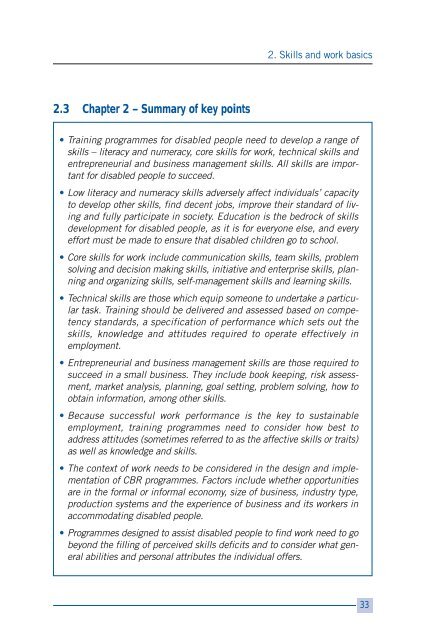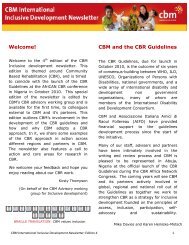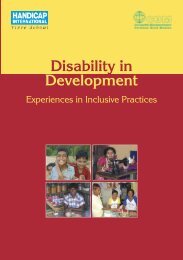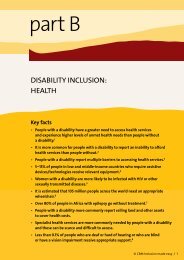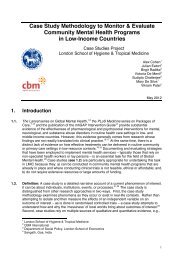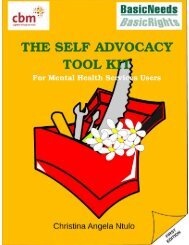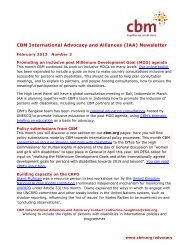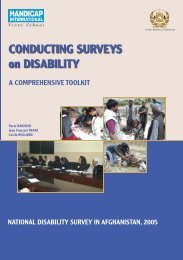Skills Development through Community Based Rehabilitation (CBR)
Skills Development through Community Based Rehabilitation (CBR)
Skills Development through Community Based Rehabilitation (CBR)
Create successful ePaper yourself
Turn your PDF publications into a flip-book with our unique Google optimized e-Paper software.
2. <strong>Skills</strong> and work basics<br />
2.3 Chapter 2 – Summary of key points<br />
• Training programmes for disabled people need to develop a range of<br />
skills – literacy and numeracy, core skills for work, technical skills and<br />
entrepreneurial and business management skills. All skills are important<br />
for disabled people to succeed.<br />
• Low literacy and numeracy skills adversely affect individuals’ capacity<br />
to develop other skills, find decent jobs, improve their standard of living<br />
and fully participate in society. Education is the bedrock of skills<br />
development for disabled people, as it is for everyone else, and every<br />
effort must be made to ensure that disabled children go to school.<br />
• Core skills for work include communication skills, team skills, problem<br />
solving and decision making skills, initiative and enterprise skills, planning<br />
and organizing skills, self-management skills and learning skills.<br />
• Technical skills are those which equip someone to undertake a particular<br />
task. Training should be delivered and assessed based on competency<br />
standards, a specification of performance which sets out the<br />
skills, knowledge and attitudes required to operate effectively in<br />
employment.<br />
• Entrepreneurial and business management skills are those required to<br />
succeed in a small business. They include book keeping, risk assessment,<br />
market analysis, planning, goal setting, problem solving, how to<br />
obtain information, among other skills.<br />
• Because successful work performance is the key to sustainable<br />
employment, training programmes need to consider how best to<br />
address attitudes (sometimes referred to as the affective skills or traits)<br />
as well as knowledge and skills.<br />
• The context of work needs to be considered in the design and implementation<br />
of <strong>CBR</strong> programmes. Factors include whether opportunities<br />
are in the formal or informal economy, size of business, industry type,<br />
production systems and the experience of business and its workers in<br />
accommodating disabled people.<br />
• Programmes designed to assist disabled people to find work need to go<br />
beyond the filling of perceived skills deficits and to consider what general<br />
abilities and personal attributes the individual offers.<br />
33


